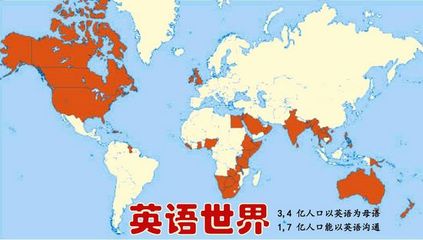
Idea:英语成为全球通用语无疑能促进经济的发展,但是对文学的发展却有负面影响。在文学领域,语言不仅仅是沟通工具,原著字里行间传递出来的韵律、暗示等都可能在翻译过程中丢失;由于只有用英语写作的作者更有可能获得认可,英语作品被翻译,这会导致用其他语种写作的文人当时积极性,使文学人才干涸。
English as the Global Language: Good for Business, Bad forLiterature
Englishis well on its way to becoming the dominant global language. Isthis a good thing? Yes, in fields such as science where a commonlanguage brings efficiency gains. But the global dominance of theEnglish language is bad news for world literature, according toCEPR researcher Jacques Mélitz (Centre de Recherche en Economie etStatistique, Paris and CEPR). Why? Because if the Englishlanguage dominates world publishing, very few translations exceptthose from English to other languages will be commercially viable.As a result, virtually only those writing in English will have achance of reaching a world audience and achieving ‘classicstatus’. The outcome is clear, Mélitz argues: just as in thesciences, those who wish to reach a world audience will write inEnglish. “World literature will be an English literature”, Mélitzwarns, “and will be the poorer for it – as if all music werewritten only for the cello”. His work appears in"English-Language Dominance, Literature and Welfare,"(CEPR Discussion Paper No. 2055). By literature, he refersto imaginative works of an earlier vintage that are still readtoday, and therefore the accumulation of world literature refers tothe tiny fraction of currently produced imaginative works whichwill eventually be regarded as ‘classics’. According to Mélitz,the tendency of competitive forces in the global publishingmarket to privilege the translation of English fiction and poetryinto other languages for reading or listening enjoyment may damagethe production of world literature and in this respect make us allworse off.
Mélitz makesthe following points:
Languagematters: In the case of literature, as opposed to other usesof language, language does not serve merely to communicate content(say, a story line) but is itself an essential source of enjoyment.Therefore, it is futile to argue that nothing would change if allpotential contributors to literature wrote in the samelanguage. “We might as well pretend that there would be no lossif all musical composers wrote for the cello” said Mélitz.Translations can only approximate the rhythms, sounds, images,allusions and evocations of the original, and in literature, thoseaspects are essential.
Greatauthors write in only one language: Remarkably few people haveever made contributions to world literature in more than onelanguage. Beckett and Nabokov may be the only two prominentexamples. Conrad, who is sometimes mentioned in this connection, isa false illustration in a glaring regard: he never wrote in hisnative Polish. Quite conspicuously, expatriate authors generallycontinue to write in their native language even after living fordecades away from home. This holds not only for poets, such asMickiewicz and Milosz, which may not be surprising, but also fornovelists. Mann went on composing in German during a long spell inthe US. The list of authors who have inscribed their names inthe history of literature in more than one language since thebeginning of time is astonishingly short.
Englishis much more likely to be translated: For straightforwardeconomic reasons, only works that enjoy exceptionally large saleshave any notable prospect of translation. Heavy sales in theoriginal language represent an essential criterion of selection fortranslation, though not the only one. As a result, translationswill be concentrated in original creations in the major languages.Since English is the predominant language in the publishingindustry, authors writing in English have a much better chance oftranslation than those writing in other tongues.
If youwant to reach a world audience, write in English: Inscience, as in literature, a person writing in a minor language hasa better chance of publication than one writing in a major tongue,but will necessarily have a much smaller chance of translation andinternational recognition. The result in science is clear. Thosewho strive to make a mark in their discipline try to publish inEnglish. By and large, the ones who stick to their home language –English excepted, of course – have lower ambitions and do lesssignificant work. The same pressure to publish in English existsfor those engaged in imaginative writing who wish to attain a worldaudience.
Englishdominance may cause the world pool of talent to dry up:However, the evidence shows that in the case of literarywriting, the gifted – even the supremely gifted – in a languageother than English generally cannot turn to English by mere dint ofeffort and will-power. Thus, the dominance of English may sap theirincentive to invest in personal skills and to shoot for excellence.Working toward the same result are the relatively easier conditionsof publication they face at home. If so, the dominance of Englishin translations may cause the world pool of talent to dryup.
Along withthe advances in telecommunications in the last thirty years, thedominance of English in auditory and audiovisual entertainment hasbecome far greater than in books. Does the argument abouttranslations in literature apply more generally and explain thiswider ascension of English too? The answer is partly positive asregards television, but mostly negative in connection with thecinema. US television series indeed benefit from an unusuallylarge home audience and only travel abroad when successfuldomestically. On the other hand, a film need not succeed in thehome market before being made available to foreign-language cinemaaudiences. Hollywood achieved an important place in the cinema inthe era of the silent film.
 爱华网
爱华网


